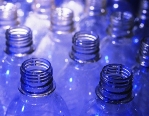
Are You Prepared for Water Disruption?
Freezing weather in rural Alabama broke water mains, burst pipes, and kept some 111 households without water between seven and 12 days last winter. A southern state, Alabama communities allow pipes to be laid out aboveground and without insulation.
The Alabama Department of Public Health and the Centers for Disease Control and Prevention made use of this opportunity to determine if the water service interruption and low-water pressure resulted in any adverse health effects. The agencies stated that 15.6 percent of households were more likely to report acute gastrointestinal illness than members of unaffected households. In addition, the investigation clearly showed that the communities were not prepared.
I used to keep five washed milk jugs full of drinking water in my house, just in case of an emergency. At some point, when I needed additional storage, I discarded them. I still have six cans of Sterno and a camp stove as well as a propane grill. But that's it.
As a result of the investigation, CDC updated its guidelines for public health agencies, offering guidance for household preparedness, too. They encourage households to identify vulnerabilities to freezing, protect pipes, and store a minimum of three days' supply of potable water. I would venture to say that a water purification kit may be useful. These recommendations could be effective in workplaces as well.
Obviously, if you don't have any emergency water on hand, you will have to find some or wait until the Calvary arrives. If you have low-pressure in the house, which may be coming from the water distribution system, you may be subject to potential waterborne disease, according to some studies. The importance of boiling such water can't be minimized.
Even though winter is virtually over, water scarcity can happen for a number of reasons, including the approximately 240,000 water main breaks that occur annually in the United States. I'm going to find some water bottles (generally I avoid these but they seem smart for emergencies). For more information, visit www.cdc.gov/healthywater/emergency/preparedness/before.html .
Take note, take care, be safe.
Posted by L.K. Williams, EPonline on Mar 01, 2011